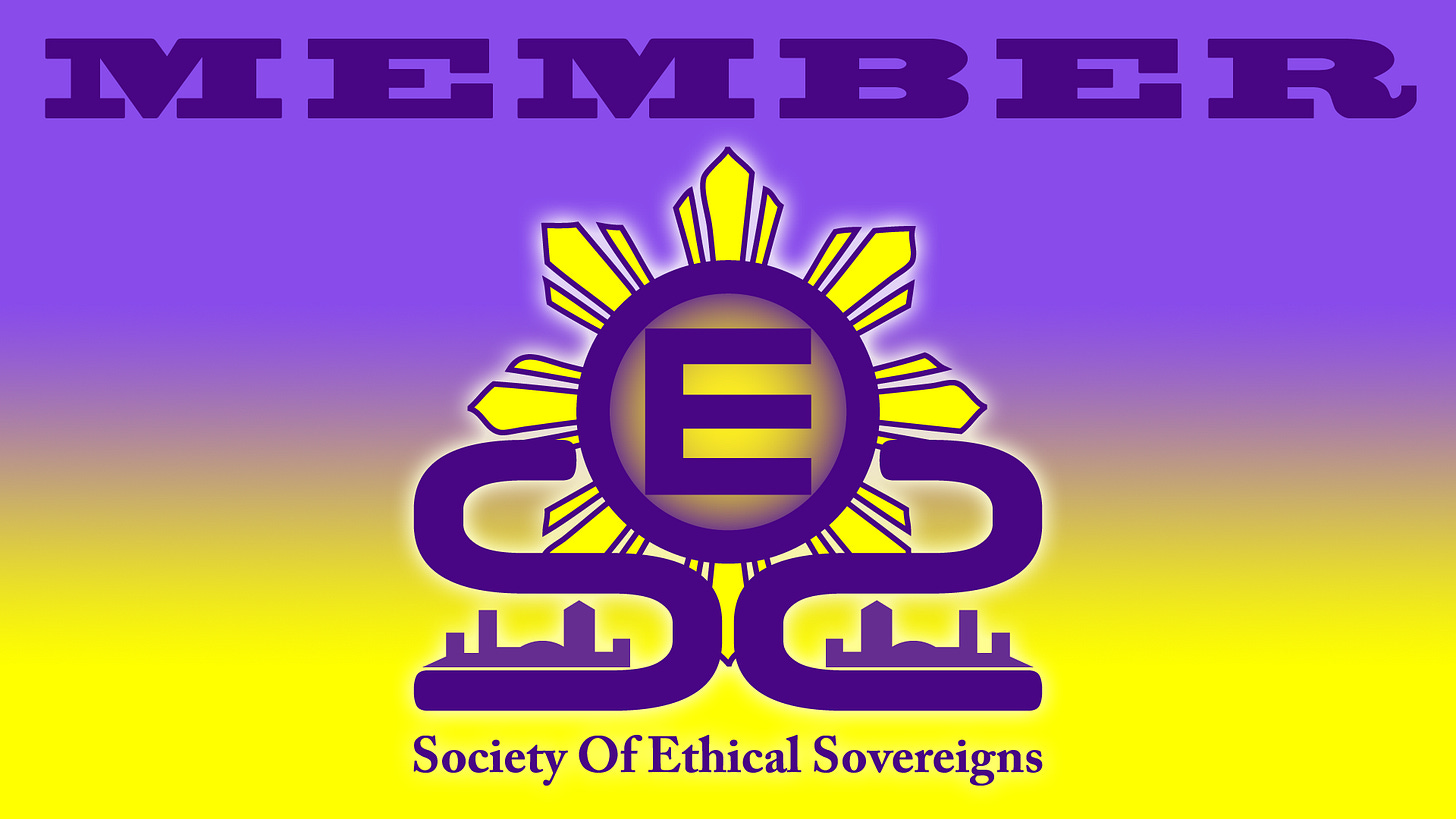We grew up being taught that there are laws We must abide by and the legal system is there to serve and protect Us. We were taught that the Acts, Bills, Codes, Statutes, Ordinances, Regulations, Mandates, Rules, and other proclamations are Law. With a big “L.”
That these things We must abide by.
But the fact is that everything in the legal system is only called “law” to get Us to keep thinking We must obey. And surely, some of the “laws” deal with things that are unLawful, making it seem that the system is there to do that serving and protecting.
But then there are others that belie the idea that the system is there to serve and protect Humankind. Any “law” – or as I would call it, legalate – that protects moneyed interests to the detriment of Some, or bars One from doing Ethical things, is there not to serve and protect Humanity, but rather, special interests.
If One has a business that is threatened by Ethical behavior of Others – say, offering a cheaper and better product – One can pay the “lawmakers” to make some aspect of the competition’s process illegal and remove the threat. (Money – such delightful things are done because of it.)
They’re making free speech illegal. By coining the term “hate speech,” They have created something vague and pernicious They can use to shut anyOne up that is saying things They don’t want heard. They have made it legal to steal from Us in the form of “taxes” – quite counter to Ethics. They have made it legal to demand Most (with legal exception for Themselves, of course) get toxins jabbed into Their flesh...
And who are “They?” The psychopaths in control on Our planet – by virtue of money.
Yes, the legal system is run by money. Really, it is only there for the moneyed Ones. And if breaking a store window to steal things did not affect profits, They would not bother passing a legalate saying that unEthical act was illegal.
And it turns out that no One knows how many legalates are on the books. Millions, at this point, at least. For legalates stand in that system until repealed, and so it comes down to things like, it is illegal to walk down the street with an ice cream cone in Your pocket in some places.
What motivated that legalate is unknown, but it’s “on the books” in Alabama. (After a bit of research, I determined that it was put in place because horse thieves would lure horses away with ice cream so as to not be charged with theft. An unEthical thing, to steal horses without actually taking them in hand. Horses are not much stolen, these days, but that legalate is still there…)
Don’t get Me started again on the collecting of rain water!
Given no One knows the number of legalates out there, the whole “ignorance of the law is no excuse” can be seen as absurd. Given the number is unknown, how can anyOne be expected to know the content of them all?
But when it comes to the Laws, all three of them, ignorance surely is not an excuse.
The three Laws of Ethics (Natural Law expressed as the three things not to do):
Do not willfully and without fully informed consent hurt or kill the flesh of anOther
Do not willfully and without fully informed consent take or damage anything that does not belong to You alone
Do not willfully defraud anOther (which can only happen without fully informed consent)
We all know that these things are not okay to do. If You ask anyOne if it’s okay to do these things to Them, every One of Them will say, “No!” (To say, “Yes,” is to give consent and leaves the question unanswered.)
Everything else is a matter of taste.
We can stand under these Laws, and eschew the legal system, withdrawing consent from it. That is always an option. Yes, when there are but a Few of Us standing under the three Laws only, the costumed bullies can – and likely will – bully Us. When enough of Us stand sovereign under the Laws, the bullies will be outnumbered.
I am an Ethical One. I do not break the three Laws. I have withdrawn consent from the legal system. And so far, since My last communication years ago, They have left Me alone. When My truck was working (it’s not right now and I have no money, so fixing it is problematic), I would pass many a car with the bully lights atop, and none would bother Me. See Walking the Walk Some More linked below.
The question now is, are You willing to stand in aggregate with Me?
Are You strong enough to let the bullies know You do not consent and therefore are not subject to anything in that unEthical system? Only if it deals with unEthical things Ethically can it hold water. Or…
Will You let Them get to the point where They pass a legalate saying You must sacrifice Your firstborn to Moloch to help solve for Their manufactured “overpopulation” BS?
The time to choose is Now.
.
As My regular readers know, I ask for no money as payment for My work for Humanity. I ask for payment in shares. Please, if You feel My work has value, share with ten or more People. This will be the only way the information is spread.
.
.
Links to info:
.
Walking the Walk (article): https://amaterasusolar.substack.com/p/walking-the-walk
Walking the Walk Some More (article): https://amaterasusolar.substack.com/p/walking-the-walk-some-more
Ethical Contracts vs. Legal Contracts (article): https://amaterasusolar.substack.com/p/ethical-contracts-vs-legal-contracts
“Someday Real Soon Now SomeOne Will Fix It for Me!” (article): https://amaterasusolar.substack.com/p/someday-real-soon-now-someone-will
Just Stop Consenting! (article): https://amaterasusolar.substack.com/p/just-stop-consenting
Money Motivates the Most Marvelous Manifestations! (article): https://amaterasusolar.substack.com/p/money-motivates-the-most-marvelous
.
.
.
Signature:
.
.
Endia – A Short Story by Amaterasu Solar
http://tapyoureit.boards.net/thread/260/endia
.
Quite the Opposite – A Short Story for Change – by Amaterasu Solar
http://tapyoureit.boards.net/thread/72/quite-opposite-short-story-change
.
The Abundance Paradigm – A Novella by Amaterasu Solar
http://tapyoureit.boards.net/thread/242/abundance-paradigm-novella
.
.
My father taught Me never to believe anything. He told Me to place probabilities and adjust them as new data come along, asking the question, "Does that explain what I see?," when evaluating data. He was an aerospace engineer, and worked with T Townsend Brown (see My featured vid on Odysee or YouToilet). From a very early age I was concerned that the way I was told things worked, in terms of government and social affairs, did not explain what I saw. So the first few decades I worked to determine WHY this was.
I wound up in banking, seeing the flow of things in the headquarters of a major bank in Los Angeles. I became intimately familiar with the flow of money, and economics. I asked the question, "Why do We use money?"
When the web arrived, My research capabilities flourished, and I learned much that explained what I saw, but the only explanations I found for why We use money started with trade and barter, which are still money in a direct form, and did not answer the WHY. Then, I came upon the explanation that these were used because, with a finite amount of stuff, it was to ensure that We got Our "fair share" in a scarcity environment, in exchange for the work We added.
From this I realized the WHY. We were accounting for Our energy input into things. And that We needed to do this because the Human energy was scarce compared to what We needed to be produced (back then).
I also discovered that over half Our planet's wealth was "owned" by fewer than 100 Humans...
I was very interested in psychology, too. And studied it deeply, being fascinated by psychopathy, focusing on that aberration, learning that They had discovered a gene that manifested Individuals who were incapable of love, compassion, caring, and empathy for Others – primary psychopaths. Seeing that the wealth was so disproportionate, and that the families who "owned" it inbred, what would explain what I saw would be that They wanted to retain that psychopathic gene. Given that the wealth could feed, clothe, house ALL of Us (and give Us freedom) abundantly and many times over, and yet None set forth to care for Humanity, I had to give probability approaching 100% that They are psychopaths, as that explains perfectly what I see, and answers My quest for why the way I was told things worked did not explain what I saw.
And I asked... If I was a psychopath, with enough wealth to buy anything and anyOne I wanted to, and given that money = power (power over Others is something psychopaths seek), would I be motivated to create a false "reality" for the masses and thereby manipulate Them? I think You can figure out what answer I came up with. And would that explain what I see? Absolutely.
Now, given that money is merely the accounting token used to account for Our Human energy, it would follow that free energy would threaten fully the accounting for Our energy. If I was a psychopath, with enough money to buy sites like Wikipedia, the media, the education system, etc., would I do all I could to suppress and hide free energy?
And given I personally know that electrogravitics offers both gravity control and energy from the aether (the electromagnetic field that pervades the universe), and that it went into black projects, such efforts to hide and suppress would explain what I see completely.
So I am neither a "conspiracy theorist," nor am I a "conspiritard," but rather... I am a conspiracy analyst. And given this analysis, knowing that conspiracies are the NORM in history and that they didn't just stop some years back, I conclude that conspiracies abound. That explains perfectly what I see.
.
Love always.











The Three Laws implies they encompasses all ethical situations, but they do not.
Laws and rules are explicitly for the ignorant. If the law says you can do harm you still have a responsibility not to and if the law says you cannot do something harmless you are ethically free to do so.
Ignorance of the law is no excuse unless you're charged with upholding it, then you get qualified immunity.
Whether you have fully informed consent can't always be known in the moment and is debatable anyway. You need to take that idea to its logical conclusion for any of the laws that depend on it to be useful. The other terms could use the same treatment: fraud - intentional or negligent misrepresentation for personal gain, or whatever.
--
Morality is ( best understood as ) a personal understanding of best practices when dealing with other creatures. Ethics is formalized, usually shared, morality. Ethics is contingent - possible to the extent people share priorities.
These are ethical universals:
a) survival is a prerequisite for all meaningful
b) truth is a prerequisite for all non-arbitrary goals
c) sustainability is a prerequisite for all non-temporary goals
d) reciprocity is a prerequisite for civilization
It's all word magic. And I don't spell.